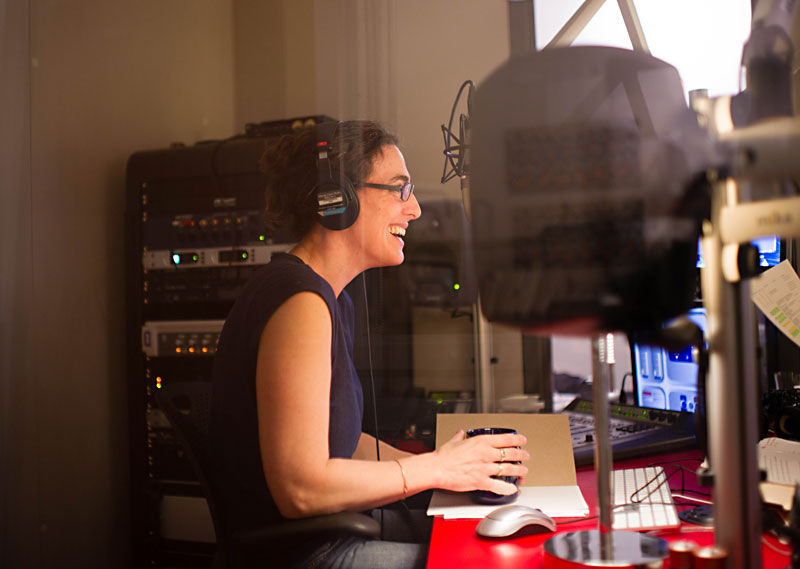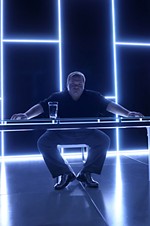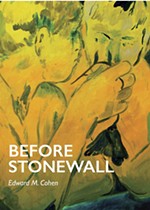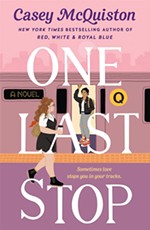Unpacking Serial
Co-creator/reporter Sarah Koenig on how the groundbreaking podcast came to be
By Rosalind Faires, Fri., July 31, 2015
I've always had a thing for hotshot female reporters. Nellie Bly, Lois Lane, His Girl Friday's Hildy Johnson – I grew up captivated by their exploits and in awe of their dogged pursuit of the story and yen for social justice. Now, I have a new addition to my hero wall: Sarah Koenig, the journalist behind the record-breaking podcast Serial. She started in print, penning pieces for The New York Times, the Concord Monitor, and the Baltimore Sun. Koenig hit her stride, though, when she became a producer, reporter, and occasional guest host for the acclaimed radio series This American Life, where her wit, thoughtfulness, and investigative verve led to scintillating stories such as "Habeas Schmabeas," the Peabody Award-winning episode about Guantánamo Bay. More than 10 years later, she has her own personal Peabody thanks to Serial, the first season of which spent 12 episodes investigating the 1999 death of Hae Min Lee, a Baltimore high school student, and the dubious conviction of her ex-boyfriend, Adnan Syed, for her murder. Koenig will be in Austin Saturday, Aug. 1, to give a talk at the Long Center about how Serial came to be and to be so popular. She spoke with the Chronicle about the joys and perils of becoming a character in your own story.
Austin Chronicle: You have a background in criminal-justice reporting in print that certainly translated to your producing and reporting work on This American Life. In what ways did that background inform your work on the first season of Serial?
Sarah Koenig: First of all, I just understand that world to a certain degree. I'm not intimidated by having to find court records or talking to prosecutors – if I had to do some sort of business reporting and had to figure out somebody's tax returns, I would have a coronary. But this kind of reporting, I am familiar with it and I'm also very interested in it. I find these stories continually fascinating, and I love how inevitably complicated they all are. It's people fighting over a version of the truth, and I always find that pretty interesting.
AC: You've talked about the ethics of consuming journalism as entertainment and the difficulty of dealing with a fan base that sometimes doesn't humanize the victim of a brutal murder. Were there points in the prep work and production of Serial's first season that you felt you were at license to enjoy your work, and were there times when you and your team had to check in and remind yourself that there were real people?
SK: I was always mindful every day that a young woman was horribly, horribly murdered and she has a family. It was never like, oh, right, right, I have to remind myself – no, that was very present. That said, I totally enjoy what I do, and I totally enjoy investigating, and I don't think it's wrong to get excited about that. I mean, talk to any homicide detective who likes what he or she does, and they'll tell you how much fun it can be to investigate. We considered very carefully before we started broadcasting and as we were broadcasting what was respectful and responsible and right. We did not have lots of photos of almost anyone on our website. We didn't do prurient or lurid things because we could – it's just not what we're interested in. I don't find pleasure in that! And it's not like we didn't have access to those materials; we just didn't use them. You choose what to present. I mean, obviously I'm not holding back factual, important information. It's more the style of it.
AC: You've spoken about Serial at its outset being an experience in long-form podcast journalism. Were there long-form print, long-form film, or long-form radio documentaries that were sources of inspiration and validation as you started pitching and then working on Serial?
SK: For me, just generally – [laughs] this sounds really nerdy – I really like books on tape. Like novels? I wanted to create that experience for other people, where you feel like you're entering a world for a long time and you can kind of get lost in there. The difference was, you know, it was nonfiction. But in terms of an actual documentary, I don't know, I'm probably influenced by a billion things consciously and unconsciously like we all are, but the one we actually talked about a lot as a staff, like Julie and Dana and I talked about, was The Staircase. Do you know that documentary?
AC: No, I don't.
SK: Oh, it's so great! It's [by] a French filmmaker, Jean-Xavier de Lestrade, and it's an eight-part documentary where he follows this very confusing murder case. Ours is very different in a bunch of ways – principally, he's not a character in it at all, it's not narrated – but that kind of deftness and delicacy and thoroughness of what he did, we were all sort of blown away by that and we talked about it a lot.
AC: You mention being a character. The forthcoming nature of your narration, how you talk about your own mixed feelings on the case – it absolutely makes you a main character in the first season of Serial. Did you intentionally embrace that at the start?
SK: You know, if you've listened to This American Life, we put ourselves into our stories pretty regularly. If you've listened to, for example, "Mr. Gilmer and Mr. Hyde," that's a story that's also about a strange case and we're sort of musing all through that as like, "What the hell, who's telling the truth?" and – it wasn't a huge departure. That said, it's to a bigger degree. I had not planned to put myself in it in the way it ended up happening. Honestly, it wasn't until I was building the second episode where my colleagues were like, "I'm bored unless you tell me what you think. If you're just going to tell me a bunch of facts and it's so detailed – you have to make me care. And I need to know why you care." Then I was like, "Okay, I see." At first, I was a little uncomfortable with that – it's not my training as a reporter to do that so forcefully, but with this story – I don't think every story needs that, I think this story needed it. There's so much uncertainty in this story, and it's so technical and detailed that you really need a strong hand telling you what to listen for and why. And it's a 15-year-old case, so it's like, "Why am I bringing it up?" I'm bringing it up because I have questions about it. I personally have questions about it. Nobody else is bringing it up. [Laughs.] Here's why I'm interested: because this doesn't make sense to me and this doesn't make sense to me and this doesn't make sense.
I feel like the thing you're afraid to say to me, that you really shouldn't be afraid to say to me, is that there was a lot of "Is it okay to put yourself in a story like that?" And I feel like, don't be shy to ask that, that's fine, I can take it. [Laughs.] I feel like you can do a good job or a shitty job with anything. And I feel like there's a way to do that very badly and very self-indulgently, and I hope I didn't stray into that territory. But I feel like what I was asking you to do, based on a ton of solid and fact-check reporting, was to trust me as your narrator. And I hope people trusted me.
AC: I'd love to talk about your lecture – is that the terminology that you're using to describe your talk tour?
SK: I don't think it's a lecture. It's more of a talk. Lecture makes it sound like you're going to have to fight to stay awake and I'm going to be, like, learnin' you something.
AC: I would love to hear about how this talk series got started.
SK: [Julie Snyder and I] got a ton of requests to come talk to this group and that group, and we were a little overwhelmed. Then we started messing around with, like, "What would we say?" We were so crazy while the podcast was in production, we couldn't think about anything, we couldn't reflect on anything, it was just: "Keep reporting, keep making the show, keep recording, keep making the show." And when it was all over we were like, "What just happened? And how do we feel about what just happened?" – you know? "Like, what the hell happened?" [Laughs.] It was interesting to try to think through that problem of "What do we think happened?" and "What were we thinking we were doing?" and "Did the end result differ from our goal?" and "How do we feel about that?" and "What are the peculiarities of reporting a story like this?" We got interested in it. So we built this kind of speech where we have slides and it's funny – I hope! – in parts and we play tape – or I guess it's "I" because it's me by myself in Texas – so I'll play tape and talk about the recording process and the process of making the podcast and what it was like to be caught in a pop-culture moment like that.
AC: Are there any big takeaway lessons from working on season 1 that you have on the brain for seasons 2 and 3?
SK: I don't know. I mean, there are a bunch of production lessons we learned, but those are boring unless you actually make radio shows, you know? [Laughs.] So I won't bore you with those. Personally, I now know I need a really comfortable chair. [Laughs.] Like, I don't want to shortcut the ergonomics again. But in terms of reporting, not really. I've been a reporter for, I don't know, 25 years, so it's like –
AC: You have a pretty good tool kit.
SK: Right? I feel like I know what I'm doing. The other thing, too, that sounds a little less, I don't know, braggy than that is that every story is so different. So even if I learned lots of lessons reporting on the Adnan Syed case, those don't necessarily carry over to the next thing anyway. I think maybe the biggest thing or the most heartening thing we learned was that audiences will stay with you if it's good. We just made a 10-hour audio documentary and got 90 million downloads or whatever it is? Well, shit! People will listen. If we're interested enough and we do right by the story, people will come along for that.
Sarah Koenig will speak Saturday, Aug. 1, 8pm, in Dell Hall at the Long Center, 701 W. Riverside. For more information, visit www.thelongcenter.org.











